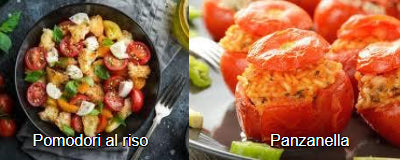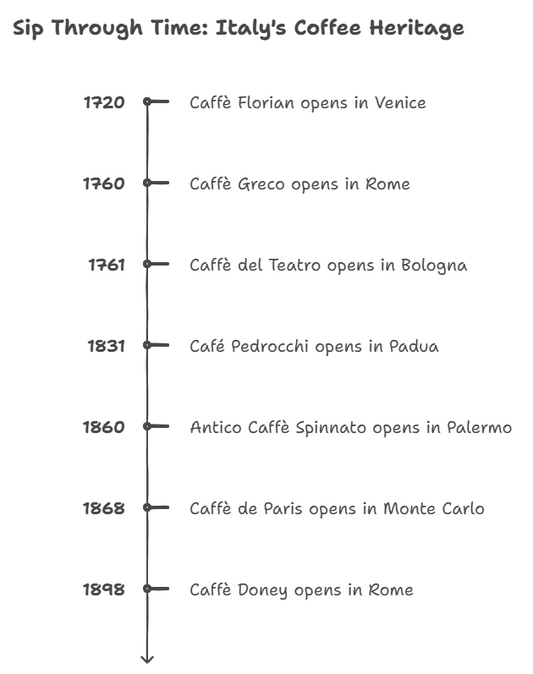What makes August 15 so special for Italians?
On this day falls the most important summer holiday for Italians, Ferragosto, that marks the beginning of a long period of holidays. People take a break from the toils of daily life and some even check into holiday resorts to celebrate. The Assumption of Mary, an important Catholic event, is also celebrated on this day.
So how exactly did Ferragosto come to be?
History behind Ferragosto
Italians can thank the emperor Augustus, who introduced it way back in 18 BCE.
In ancient Rome, many festivals were celebrated in August, all rejoicing the end of a lengthy and grueling period of agricultural labor. So, Augustus decided to implement a connection between all those festivals to create a longer period of rest and also use this period to revel in his victories of important battles that took place.
This was called Ferragosto. The name is derived from the Latin ‘Feriae Augusti’, which translates to ‘Festivals of Augustus’. This technically means that Ferragosto is a festival to celebrate festivals.
In olden times, horse races were held throughout Italy as a way of celebration. Additionally, people also released working animals such as mules, donkeys from their routine tasks such as plowing. There were also adorned with flowers.
While some of these ancient traditions are upheld in modern times, much of how the Italians of today celebrate Ferragosto began with the fascist regime.
In the 1920s, Mussolini announced Ferragosto as a national holiday as part of his endeavors in establishing a national identity for Italy. Along with this, discounts on travel fees were given to people of the working class so they could take trips to places like seaside resorts or other Italian cities. This initiative was known as the ‘People's Trains of Ferragosto’ and it allowed less affluent Italians to take part in the celebrations as well.
Food in Ferragosto
It is also a custom to have Ferragosto lunch, known as pranzo di Ferragosto, with family and friends.

Think of it as the Chinese New Year dinner, Italian style. Packed lunches are popular, where Italians prepare food beforehand and enjoy it at a scenic location they decided to take a trip to.
- In Tuscany, people prepare Panzella which is a type of salad that is made using stale (yes, stale) bread and vegetables such as onions, basil, and tomatoes. Olive oil and vinegar are used as dressings.
- Pomodori al Riso is another dish that is prepared. For this dish, juicy tomatoes are stuffed with rice that is seasoned with olive oil, garlic, tomato juice, and herbs. They are then baked and consumed after being set aside for a few hours to allow all the flavors to infuse. For all the sweet tooths, there is biscotti.
- In Stresa, a town in Italy, a type of biscotti called Margherita di Stresa is prepared. These daisy-shaped biscuits were given to guests during Ferragosto celebrations by Queen Margherita. Furthermore, the biscotti di mezz’agosto is doughnut-shaped and made with anise and wine. Back in the day, these were prepared as snacks for workers toiling away on farms. Humble origins, but great taste!
Modern Ferragosto Celebrations
The tradition of traveling created during the fascist regime is still very much popular today. If you ever find yourself in Italy during the Ferragosto period, you would be hard-pressed to spot many people in the usually bustling towns.
You would see stores displaying the closed sign.
Why is that, you may wonder? Well, the Italians, following in the steps of their ancestors, flock to beaches, mountains, and resorts on the off days of Ferragosto to relax, smell the roses, sip on some wine maybe.
Regional Ferragosto Celebrations
Additionally, the ancient horse racing tradition still takes place today during Palio di Siena. This takes place at the Piazzo del Campo in Siena.
The city is divided into seventeen areas called "contra de" that compete against each other. Each contra de has unique insignia and colors that are displayed on flags across the streets.
There is also a representative animal for each contra de. The Palio di Siena holds so much significance that it has a set of complex rules. It is spread over four days and on the final day, a large chunk of the city takes on a role as impatient spectators to know the winning horse-jockey pair. The bishop even does a special mass for the horse jockeys before the race begins.
In the farming town of Capelle sul Tavo, a competition takes place where paper mache is used to create life-sized dolls.
These effigies are then displayed on the town’s sports field for all the people to see. Some town representatives climb up the dolls and partake in a ritualistic dance to folk music. At the end of the day, the doll that is deemed the most beautiful wins the contest. Fireworks are also set off into the darkness of the night sky.
The Catholic Church and Ferragosto
It is said that to undermine the paganism attached to Ferragosto, the Catholic church shifted the celebration of the Assumption of Mary to the same day.
The Feast of the Assumption commemorates the assumption of the Virgin Mary, mother of Jesus into heaven. Special masses are held across cathedrals, churches, and chapels throughout Italy.
Thus, it is not uncommon for Italians to view August 15 as a day of religious significance. In the city of Sassari, the Festa dei candelieri is held, where there is a dancing procession in which wooden columns are fashioned to be "candlesticks". These candlesticks are carried on the shoulders of the people in the procession through various streets until they reach the church of Santa Maria di Betlem.
This tedious journey is a great demonstration of faith.
Conclusion
Pagan or not, the period of Ferragosto is indeed a time that Italians hold dear to their hearts and get together with their loved ones. The whole country is enveloped by a shroud of ecstasy and light-heartedness, which would be great to experience!




